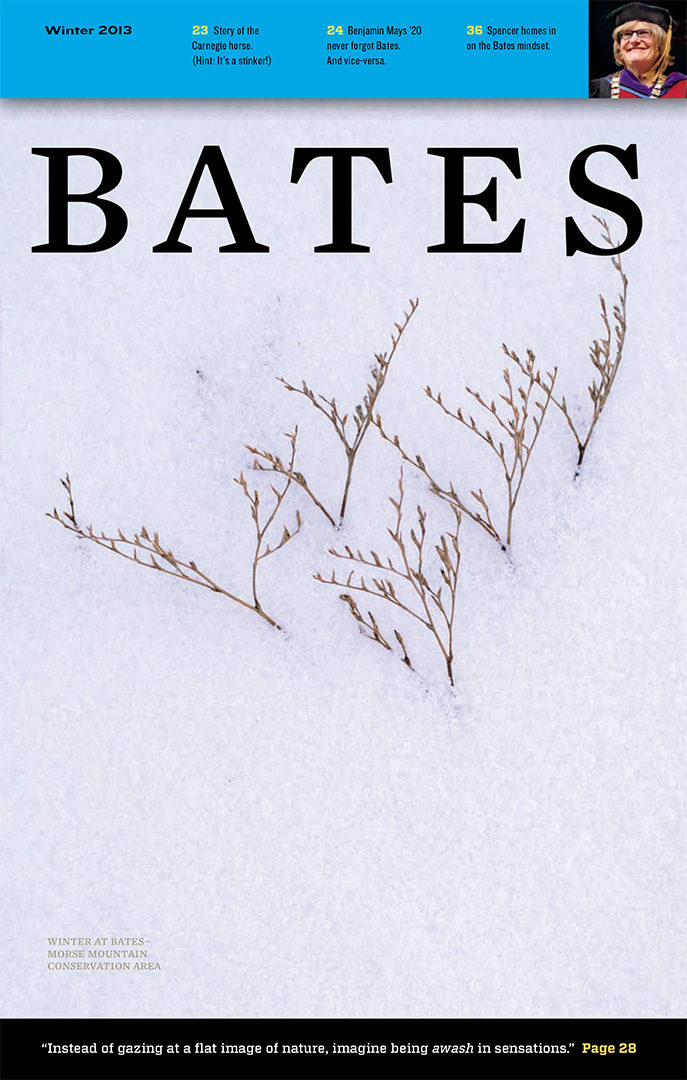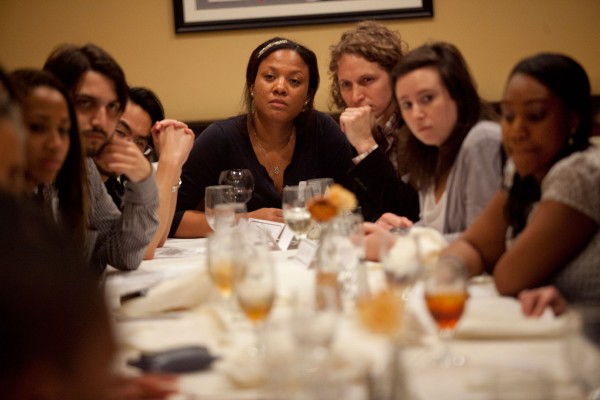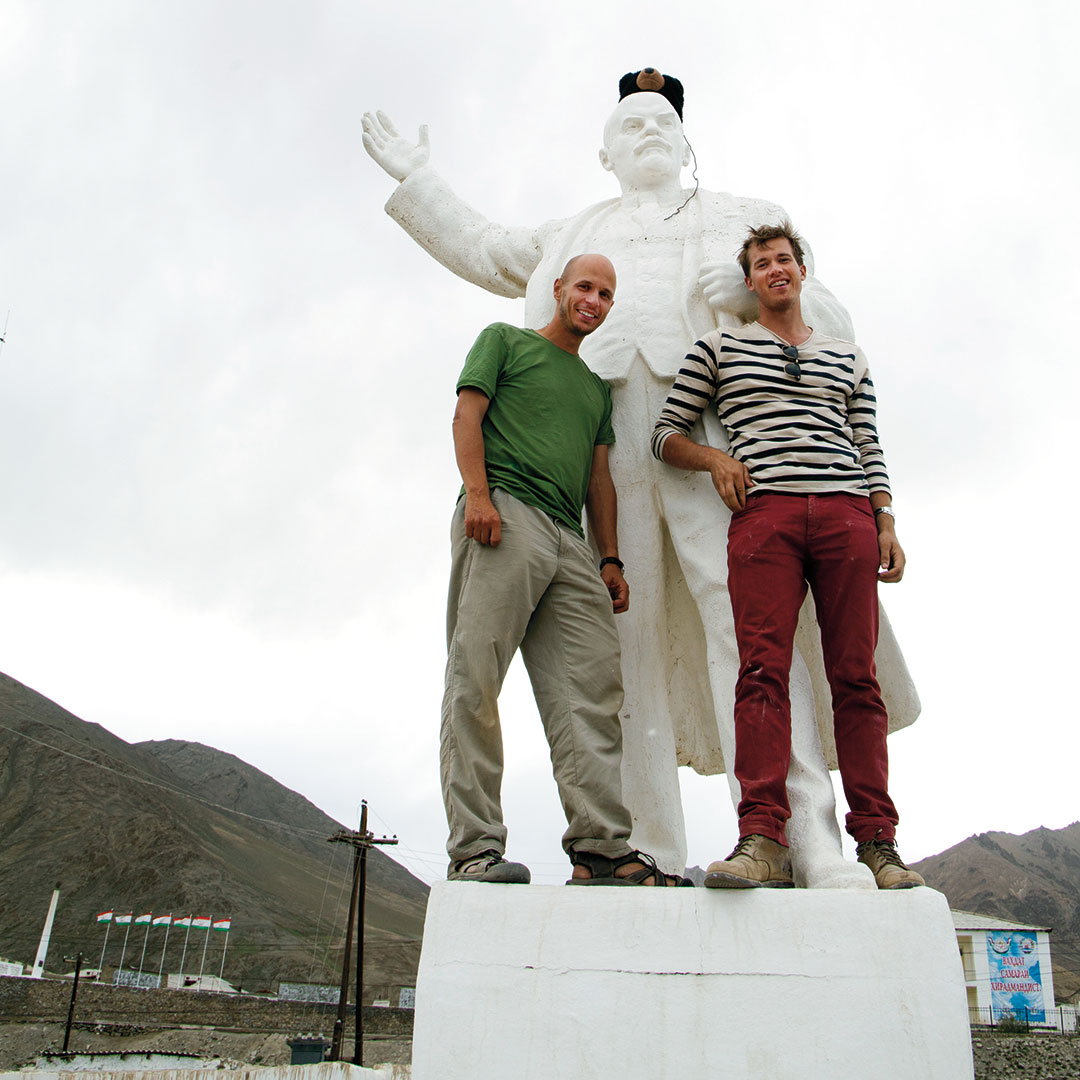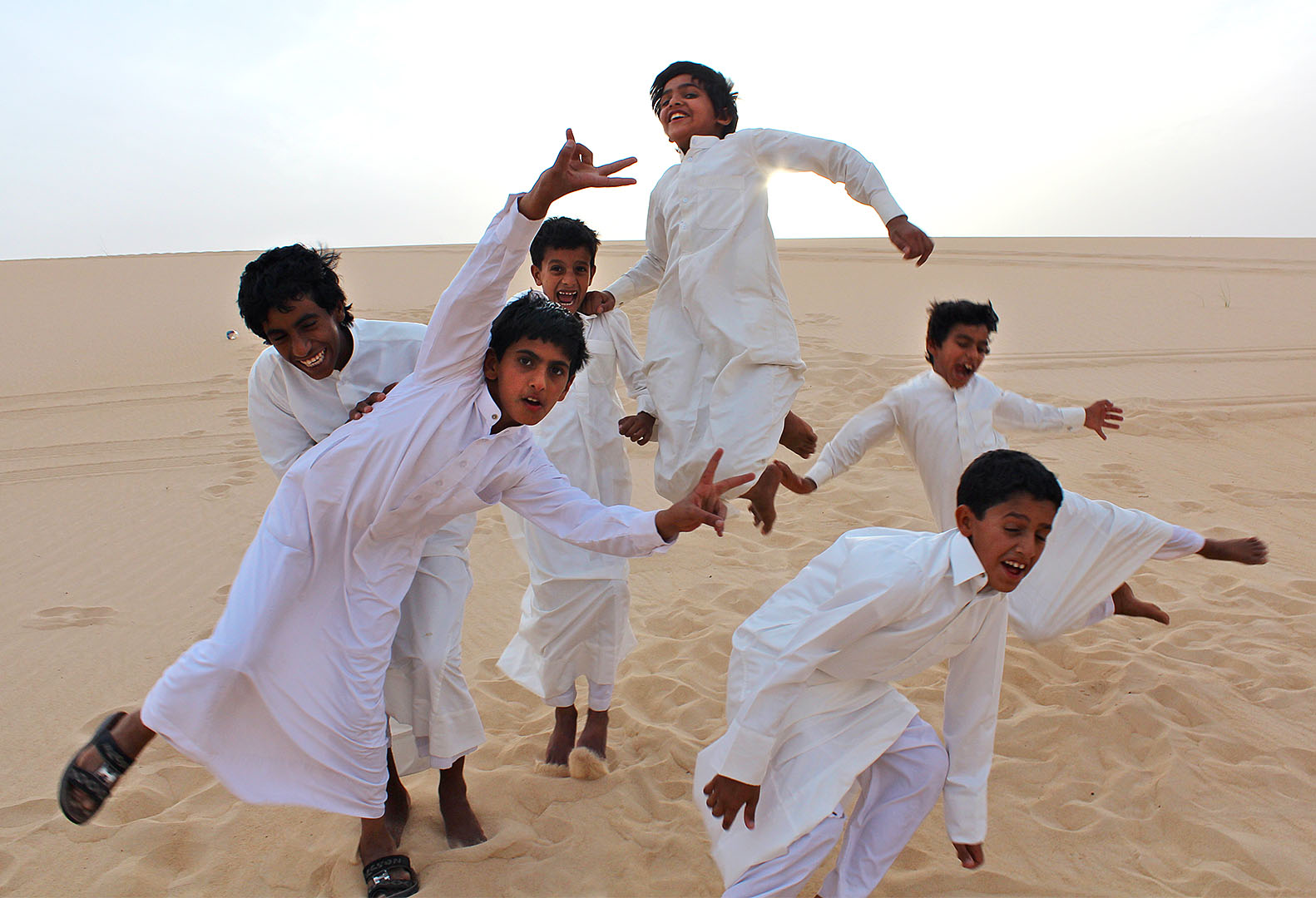
‘Multicultural Voices’ takes a deliberate route to multicultural engagement
Listen and Learn
By H. Jay Burns
Photographs by Phyllis Graber Jensen

Alumni, students, parents, and friends have the look of listeners during the Multicultural Voices listening tour event in Atlanta last winter. Photograph by Phyllis Graber Jensen/Bates College.
“The framework is genuine — to listen,” Anecia O’Carroll says.
She’s talking about “Multicultural Voices,” the college’s alumni listening tour that started in Atlanta over the winter.
O’Carroll, who oversees multicultural and international programs for the Office of Alumni and Parent Engagement, is member of the Alutiiq tribe of Alaska. As such, the Bates tour is modeled less on the trendy presidential campaign versions seen in Iowa these days and more on O’Carroll’s own background and experiences.
The Bates tour, she says, is strongly influenced by the tradition of the Native American talking circle, where each person’s voice is distinct, not lost in a din.
“It’s an ancient approach to resolving problems and promoting understanding,” says O’Carroll, an expert in career counseling, psychotherapy, and multicultural initiatives who has lived in diverse communities around the world.
Fairchild McGough Dixon ’94, who attended the Atlanta session, says the “rousing discussion” felt like a Tuesday night seminar class from college days past. “It’s what I most miss about Bates,” she says.
In recent years, Bates has been resolving problems and promoting understanding with various alumni cohorts, notably in the athletics realm through Friends of Bates Athletics and the LGBT realm through Bates PRIDE.
In that context, the current listening tour seeks to improve the relationship between the college and its multicultural and international alumni. Measured through traditional metrics such as giving or volunteering, their engagement with Bates is low, says O’Carroll, and that’s why Bates “needs to hear from this cohort.”
“The tour is an opportunity to ‘have a real conversation about Bates.’”
Today on the Bates campus, student diversity is at an all-time high, and new programs seek to make the campus as welcoming as its heritage says it should be. The listening tour, then, is an opportunity for multicultural alumni to “have a real conversation about what’s going on at Bates,” said student participant Ben Hughes ’12, a native of Atlanta.
After Atlanta, the listening tour visited New York City in April and in August stopped in Washington, D.C., for a session in the Patrons Lounge at the Smithsonian’s National Museum of the American Indian.
Kevin Rodriguez ’95 attended the New York City session, held at the Salmagundi Club. It only makes sense, he says, to “seek input from multicultural and international alumni — we are a great resource. And it offers alumni a unique way to give back to the college and future students.”
As Rodriguez implies, alumni engagement is a two-way street. “This cohort should be able to reap all the benefits and privileges that come with a Bates education,” O’Carroll says, “and should also share the responsibility of giving back to Bates.”
The listening tour is creating a definition of “Bates alum” with more hues.
Atlanta attendee Dixon, who is white and a native of Louisiana, recalls that Bates was “seductive” to her as a student because it offered an environment “where it would be OK to be a smart woman.” At the same time, her Southern drawl made her ripe for stereotyping. “I took extreme issue with the notion that the South was the only region guilty of racial inequity,” she says.
During the listening tour, attendees have talked about the “benefits and privileges” idea that O’Carroll mentioned.
“Minority” students and alums, broadly defined here in terms of racial, socioeconomic, or geographic identities, also suggest that they’ve not equally benefited from the Bates name as alums who fit neatly into the Northeast culture. Dixon, for example, recalls returning home to Louisiana and realizing that Tulane fraternities offered their alums more networking oomph than the Bates name.
Rahel Wondwossen ’05 attended the New York City session. After teaching in New York City with Teach for America, she is the new high school principal at New Orleans College Prep charter school.
This fall, one of her former students, a Latina from the Bronx, is at Bates. “It’s a huge victory for her — and a challenge,” Wondwossen says. “Clearly, she will receive an excellent education at Bates, along with the support she needs.”
But Wondwossen, who is African American, knows that her student will have to learn quickly how to navigate a new, predominantly white culture at Bates. “I had attended a predominately white school, so I had more code-switching skills” — that is, the ability to shift between linguistic styles — “that allowed me to transition in and out of various cultural groups,” Wondwossen says. “She has never experienced such an environment, and I was worried about her feeling isolated.”
From the listening tour, she learned about various Bates initiatives around diversity and inclusion. “I left feeling like the college is moving in the right direction.”
O’Carroll says the process of re-engagement must be sensitive. “Bates has not been too present in their lives, so this is no time to show up out of the blue and ask for anything.”
Now, the challenge is to maintain deliberate forward motion. “After listening comes responding, then listening again,” she says. “It’s a cycle of discourse and responsive action. We will let affinities form or re-form, and, yes, accept gifts of time and support for Bates as they naturally come forward.”
Listening tour video www.vimeo.com/21344918




